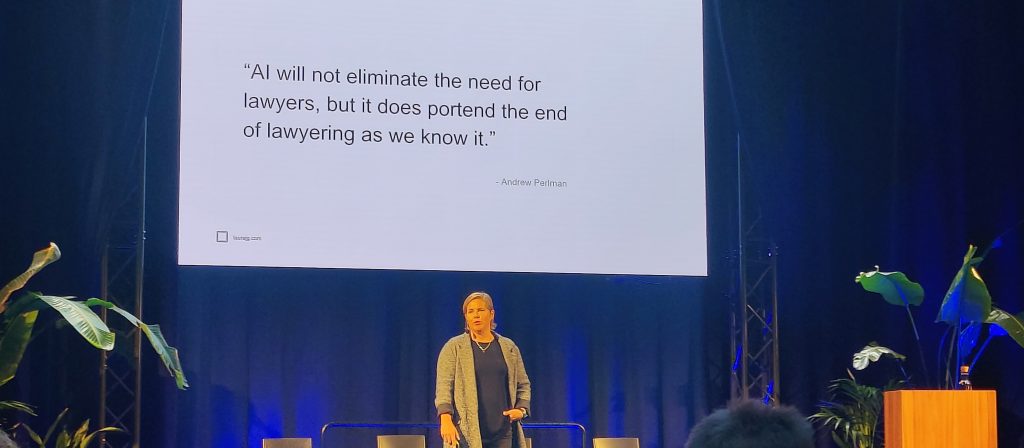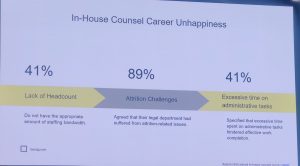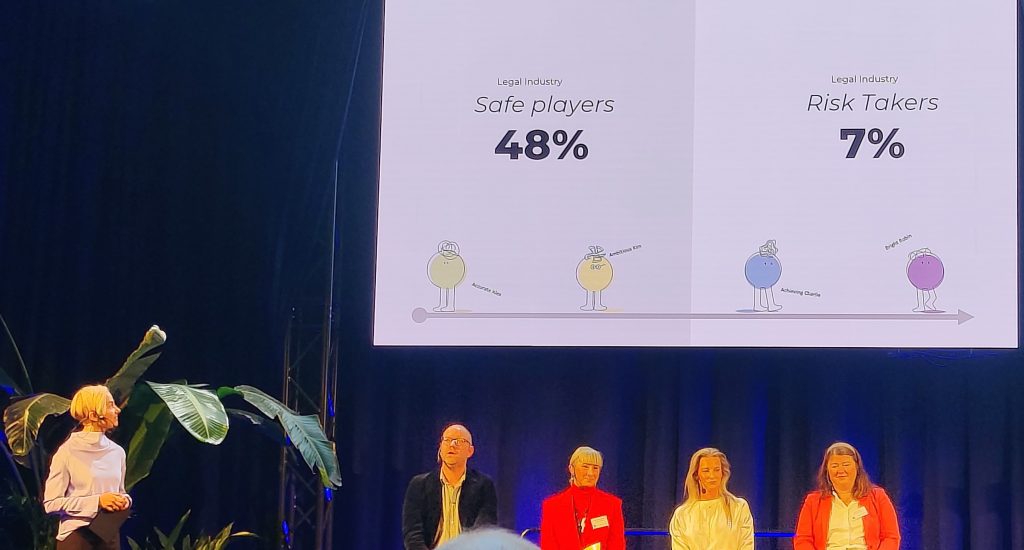Last week, Stockholm hosted the Nordic Legal Tech Day, an event organized by the Alliance of Law and Technology in the Nordics (ALTNordic). This day brought together legal professionals, tech enthusiasts, and innovators to network and delve into the intersection of law and technology. One of the highlights of the event was the presentation of the Legal Innovator Prize, an award given to an individual or organization that has made outstanding contributions to the development of the legal industry. The jury, consisting of Helena Hallgarn of VQ, Ulf Lindén of LegalWorks, and Johan Fagerlund, GC of Stockwik and chairman of the Swedish Corporate Counsel Association, awarded this year’s prize to Malin Männikkö for her remarkable leadership, organizational skills, and for bridging the gap between lawyers and technologists.

Throughout the event, keynote speeches, workshops, and discussions revolved around the growing impact of artificial intelligence (AI) in the legal field. Laura Greenberg set the tone with an enlightening keynote, focusing on optimizing legal practices with AI. As she noted, “AI will not eliminate the need for lawyers, but it does foreshadow a transformation in the practice of law,” underscoring how AI is reshaping the legal landscape.

The challenges faced by in-house counsels were a central point of discussion. These challenges include dealing with manual processes, increasing workloads, and static budgets, all of which contribute to career dissatisfaction among legal professionals. A startling statistic revealed that 41% of in-house counsel’s time is consumed by administrative tasks, hindering their ability to engage in more effective work. AI solutions present a significant opportunity to automate these manual processes, resulting in faster response times, efficient decision-making, and a greater focus on complex strategic work. Ultimately, this can lead to cost-efficiency, enabling legal teams to achieve more with fewer resources.
However, the successful integration of AI into the legal industry necessitates a combination of awareness, knowledge, competence, and strategic planning. Laura Greenberg highlighted the current use of generative AI by lawyers for various tasks, including research (62%), document drafting (46%), email composition (42%), understanding new legal concepts (20%), and document analysis (23%). She provided examples of how to efficiently prompt AI systems for these tasks, emphasizing the importance of proper training and utilization.

In the session titled “AI shaping the role of the lawyer – the human perspective,” moderated by Linda Kinnunen, psychologist Jens Näsström raised a thought-provoking issue. He pointed out that the legal industry has a higher percentage of “safe players” and fewer risk-takers compared to the general population. In fact, 48% of legal professionals are considered “safe players,” while only 7% are willing to take risks. Näsström’s insights emphasized the need to encourage new ideas and a greater willingness to embrace change within the legal community.
In a contrasting perspective presented during a panel session on changing legal operations, the idea of a chatbot replacing a human lawyer in contract negotiations was discussed. While this may not be a realistic starting point, the legal industry could begin by employing AI to handle administrative tasks. These tasks are not only problematic for in-house counsel but are also more readily accepted to be automated by IT solutions. As organizations increasingly adopt AI tools that can efficiently manage administrative burdens, they can explore the possibility of deploying AI for more advanced legal work, including the use of chatbots in negotiation processes.

